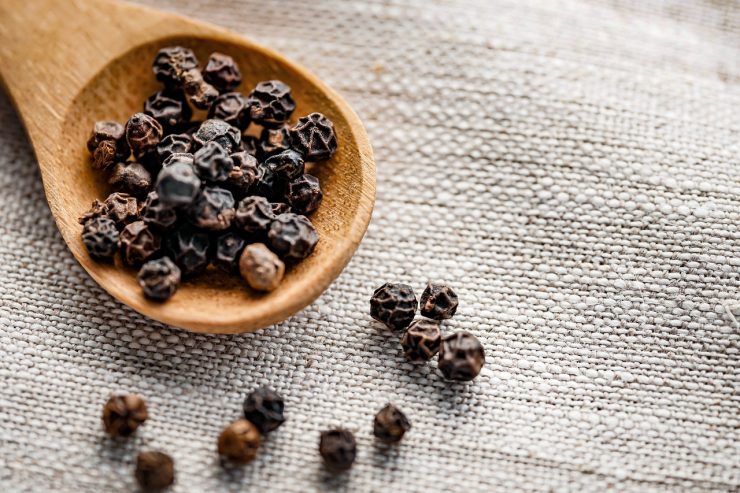It’s a staple at nearly every table, used on everything from eggs and soups to steaks and salads. Some even enjoy it in desserts. Black pepper may seem like a simple spice, but it delivers a surprising number of health benefits.
Black pepper comes from the dried berries of the Piper nigrum vine. These berries are harvested at different stages of ripeness to produce various types of pepper. Black pepper is picked just before the berries turn red, then dried until they darken. Green peppercorns are harvested earlier, while white pepper is made from ripe berries with the outer skin removed. Interestingly, pink peppercorns aren’t related—they come from a different plant altogether.
Anti-Inflammatory and Antioxidant Properties
One of black pepper’s most valuable compounds is piperine, which gives it that signature heat and holds significant antioxidant and anti-inflammatory potential. Studies have shown piperine may slow the growth of certain cancer cells. Even more compelling, when combined with turmeric (specifically its active compound, curcumin), piperine enhances absorption dramatically—making both compounds far more effective together than alone.
Aids Digestion
Black pepper doesn’t just add flavor—it also helps jumpstart digestion. When the taste receptors detect pepper, a signal is sent to the stomach to increase hydrochloric acid production, which is essential for breaking down food and absorbing nutrients, especially proteins and fats.
Low levels of stomach acid are common and can lead to bloating, gas, constipation, and poor nutrient absorption. Black pepper helps stimulate digestion, improve nutrient uptake, and reduce digestive issues. It’s also been shown to combat harmful bacteria like E. coli and Staph aureus, offering an extra layer of protection, especially when eating food that’s been sitting out or served buffet-style.
Supports Weight Loss
Piperine may also play a role in fat metabolism. Research suggests it helps reduce fat storage, lower blood sugar levels, and improve lipid profiles. In one animal study, black pepper paired with a high-fat diet led to reductions in body weight, total cholesterol, LDL, and triglycerides, while raising beneficial HDL.
Boosts Nutrient Absorption
One of piperine’s most useful benefits is its ability to increase the absorption of other nutrients. It improves the body’s ability to absorb:
-
Curcumin (from turmeric)
-
Resveratrol (an antioxidant found in red wine)
-
Beta-carotene
-
Selenium
-
B-vitamins such as B6, B1, niacin, and riboflavin
By slowing down the metabolic process known as glucuronidation, piperine allows more of these compounds to reach the bloodstream.
Reduces Carcinogens in Grilled Meats
Grilling meat over high heat can create potentially harmful compounds called heterocyclic amines (HCAs), which are linked to cancer. However, using black pepper—about one teaspoon per half pound of meat—can significantly reduce the formation of these compounds. Adding herbs like rosemary or oregano works similarly.
A Potential Tool for Quitting Smoking
Black pepper may also help reduce nicotine cravings. In one study, participants who inhaled black pepper vapor reported fewer cravings and less anxiety compared to those who used menthol or no flavor at all. Researchers believe black pepper’s sensory cues helped ease withdrawal symptoms.
A Powerful, Everyday Spice
Black pepper delivers a lot more than a spicy kick. It supports digestion, reduces inflammation, boosts nutrient absorption, and may even help with weight management and smoking cessation. With its impressive list of benefits, it’s worth adding a little extra to meals when the opportunity arises.
One Caution
Because piperine can affect how the body processes medications, those on prescription drugs should consult a healthcare provider before taking concentrated piperine supplements or consuming large amounts of black pepper regularly.











